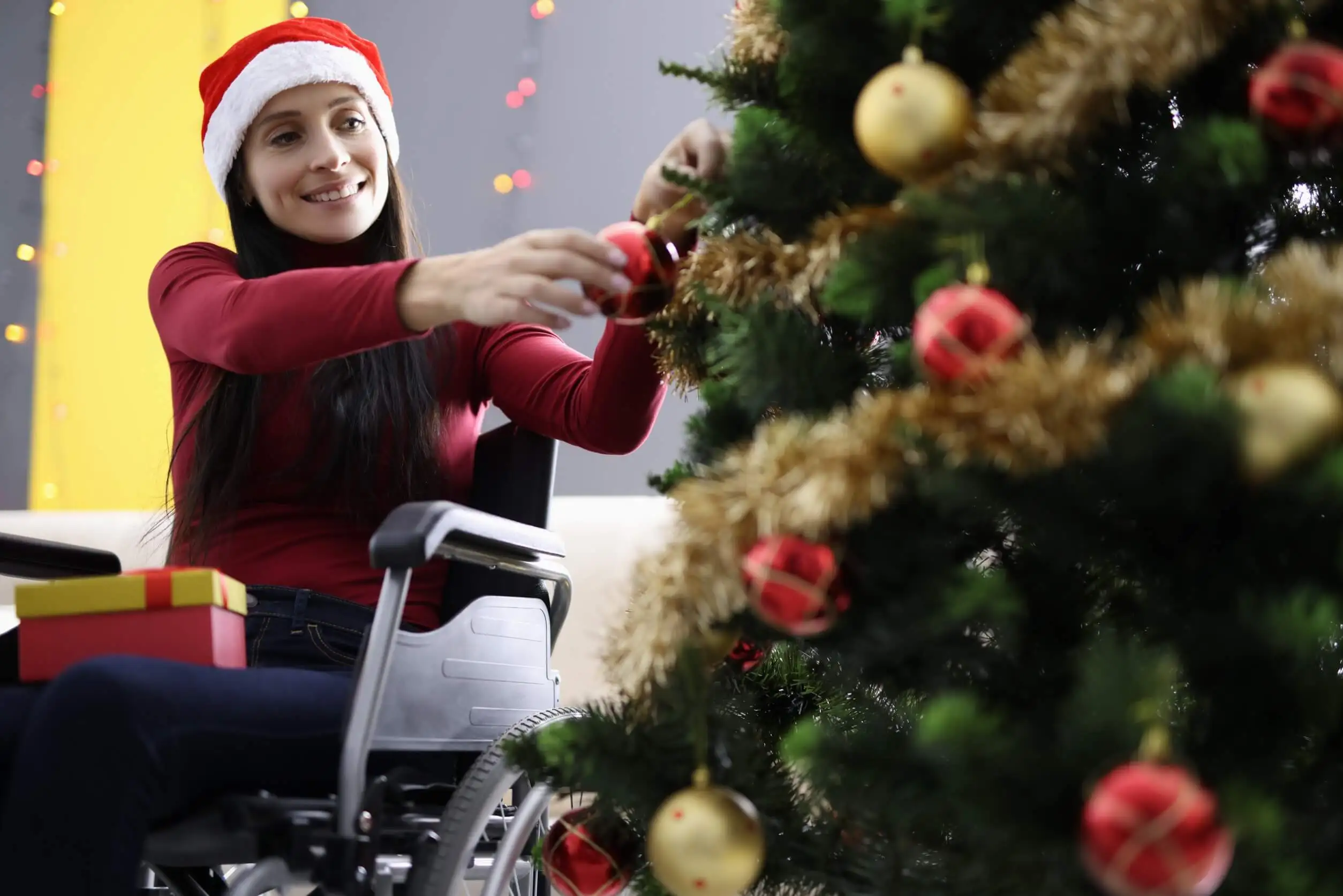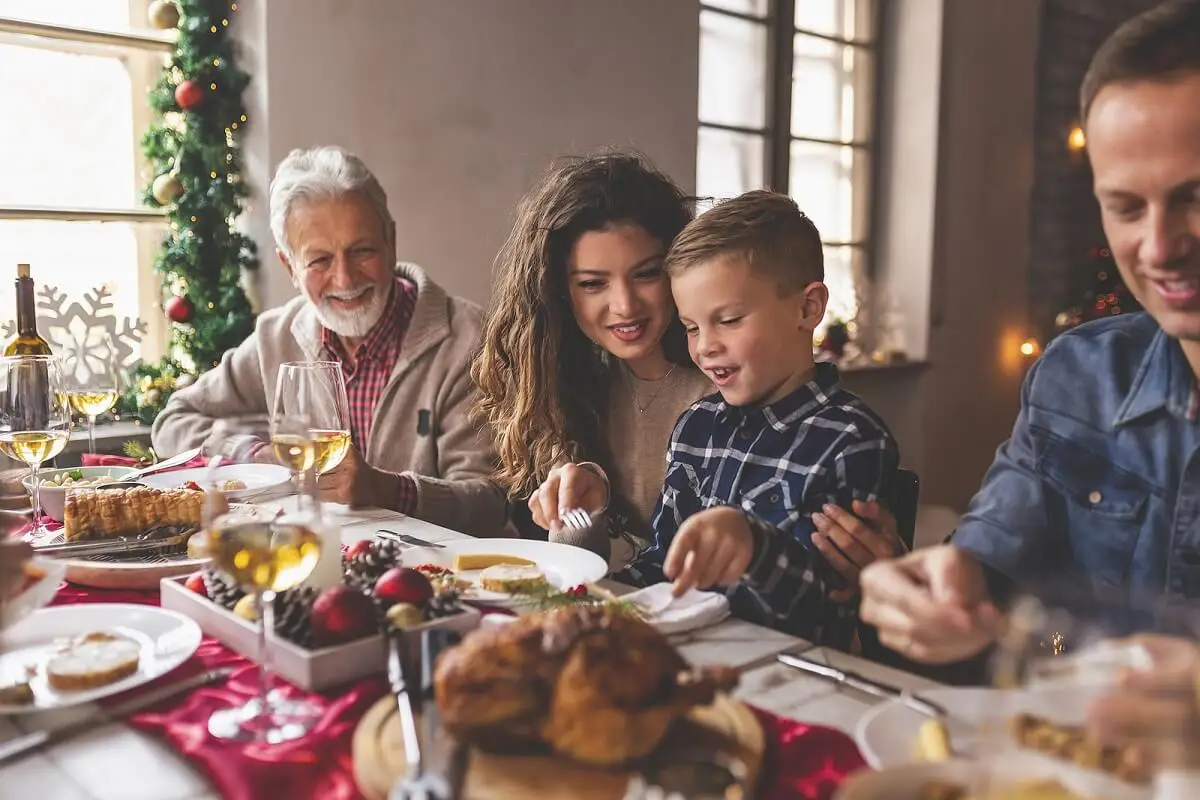How to Enjoy an Inclusive Christmas


Reviewed and approved by the psychologist Elena Sanz
Enjoying an inclusive Christmas means that everyone can celebrate and participate in the activities that are organized during these holidays according to their abilities and interests, whether it be in the preparation of dinner or in the decoration of the house.
On the occasion of the International Day of Persons with Disabilities, it’s a good idea to remember that no condition should lead to being excluded, and even less when it comes to one of the most beautiful and emotional festivities: Christmas, a time to share.
Christmas: A special date for everyone
In the month of December, one of the most important and most awaited celebrations of the year takes place for may people. Although its origin is religious, within the framework of Christian tradition, Christmas is celebrated equally almost everywhere in the world.
The holiday includes a variety of activities, ranging from decorating the house, streets, and commercial establishments, and listening to music to preparing special meals and desserts, exchanging gifts, and much more.

While many of us can enjoy almost everything that happens during the Christmas holidays when we gather with family and friends, some people may not.
We’re referring in particular to those who have some conditions, such as:
- Celiac disease
- Limited mobility
- Sensory-perceptual limitations
- Autism spectrum disorder (ASD)
- Down syndrome
- Intellectual disability
- And other neurodevelopmental disorders
Some exclusionary situations may arise when these people go to visit another place. These may be related to particularities in food, travel, communication, and interaction, among other aspects.
Consequently, it’s not surprising that, during gatherings, inappropriate behaviors are sometimes manifested. For example, this often occurs in the case of children with autism spectrum disorders; this happens due to the discomfort they may feel, due to issues such as the volume of the music or changes in their routines, as noted in some studies.
Taking into account the above, it’s necessary to make some adjustments or adaptations, so that everyone can enjoy an inclusive Christmas. To do this, both the needs of the person with any condition and those of all the others who participate in the meeting must be taken into account.
We think you may be interested in reading this, too: 24 Healthy New Year’s Resolutions that You Can Actually Keep
How to enjoy an inclusive Christmas
As we have mentioned, there are situations that can prevent the holidays from being entirely enjoyable for some people. Thus, enjoying an inclusive Christmas means attending to the aspects you will see below.
The food
Delicacies are usually, if not the center of the celebration, at least one of the fundamental components. The moment of the Christmas dinner is often awaited with much excitement.
Turkeys, hams, various types of meat, stews, salads, a variety of cakes and punches…. Each culture and country has its own culinary traditions for these dates. However, some of these delicacies are not appropriate for everyone.
It’s therefore necessary to find out if any person attending the meeting suffers from allergies or intolerances; and if a child has to follow a special diet, it’s best to prepare a special meal or have family members bring the food and explain the situation to the hosts.
On the other hand, you can have two or three menus at the Christmas dinner to choose from and combine:
- Gluten-free, for people with celiac disease: Instead of bread or cakes with wheat, they should be made with other types of flour.
- Those suffering from high cholesterol should have alternatives with lean meats and salads (but without adding mayonnaise).
- This also applies to people with Down syndrome, who tend to accumulate body fat, which is a risk factor in relation to the appearance of metabolic problems.
- For diabetics, desserts should be made with sugar substitutes.
A tip: To alleviate costs, different family members can contribute a portion of such a menu.
Like this article? You may also like to read: The 7 Most Common Causes of Stress at Christmas Time
Accessibility
If you’re going to receive people with heterogeneous characteristics in terms of mobility or movement, you must make some adjustments to ensure universal accessibility.
For example, the space in the room should be cleared a little so that a person in a wheelchair can move around. Similarly, if there are steps at the entrance of the house, a ramp can be temporarily installed at the entrance.
If you have enough resources, you can consider the possibility of renting a place where there is more space for adequate movement of all attendees.
This would also be a good option if there are children with attention deficit hyperactivity disorder ( ADHD), who will be able to run freely that day.
The decoration
Whether we have a child with ASD or we are inviting a family with a child with this disorder, we should pay attention to some situations related to the decoration of the space where the meeting will take place.
First of all, for children with ASD who live in that house, it can be a difficult situation to manage the acceptance of changes, since they do not like it when the routine changes.
This can be resolved or minimized by taking into account some recommendations:
- Anticipate remodeling ahead of time.
- As few changes as possible should be made.
- Invite the child to participate in the decorating process, explaining at all times why it’s being done.
- Take the child’s opinion into account if he/she expresses that he/she does not like something.
Likewise, in case of going with our child to another family’s house or having guests over, it’s a good idea to know the situation, to make the environment more pleasant. It’s even possible to make a visit prior to the Christmas gathering so that there are fewer surprises.
Sensory stimuli

At this time of year, the lights on the Christmas tree, the volume of the music, the fireworks, and even certain scents could lead to overstimulation, upsetting children with neurodevelopmental disorders, particularly ASD.
Therefore, moderate what is necessary; for example, turn down the lights or sounds. As for scents, the child can be gradually adapted to them so that he/she is familiar with them and tolerates them. This can be done, for example, by inviting the child to participate in the preparation process of some foods.
In case it is not possible to control all these situations, you can find a way to have a neutral space, where the child can be calm, but only when needed, since the idea is to integrate and not isolate him/her.
Participation in activities
To enjoy an inclusive Christmas, the key is that everyone participates equally in the different activities that are carried out. In this order of ideas, we can take into account the following recommendations:
- Some prepare the food, others can place the dishes on the table.
- The children can make invitation cards; they don’t have to be perfect, but they do have to be made with love.
- Everyone can participate in the decorations; a person in a wheelchair can carry items and help with whatever is needed.
- Also, there can be a music person.
The important thing is that everyone contributes from what he/she is and from what he/she knows and can do. With this, we will not only be able to enjoy an inclusive Christmas, but the celebration will help to foster self-esteem in everyone, making them feel valued and appreciated.
Interaction and integration
Christmas is a time for sharing and spending time together. Adults can entertain themselves with conversation, but children need to have other things to do. Therefore, we must find the activities and tools for them to enjoy the holidays.
In this sense, one way to increase the possibilities of social integration is through the organization of cooperative games. In these, different roles have to be played and it is necessary to interact to define common objectives and actions, thus favoring interpersonal relationships.
In the same way, board games can be available for the little ones or for everyone. Checkers, chess, dominoes, memory games, jenga, monopoly, besides being entertaining, help in the development of communication and in the cognitive aspect, improving the capacity of analysis.
The gifts
And just as adults look forward to dinner, children look forward to gifts. However, it’s important to make sure that they are appropriate to their age, needs, and condition, so that when they receive and open them they can enjoy a truly inclusive Christmas.
There are a variety of educational toys that are beneficial for everyone. For example, those that serve for sensory stimulation and those to assemble and disassemble. Ideally, they should be easy to manipulate and understand and the level of difficulty can be adapted according to the child’s abilities, but at the same time, they should require that they think a little.
Christmas for everyone
In a world where we are all different, we have to learn to accept and tolerate those differences. And the best way is to interact often to get to know each other so that all the diversity of ways of being and acting do not seem strange to us.
In the educational context, Universal Design for Learning (UDL) has taught us that there are strategies that can be planned for everyone equally and not only encourage participation, but can enhance learning.
Similarly, enjoying an inclusive Christmas is possible if we organize everything, from the food to the gifts, so that the members of the family group attending the dinner feel valued and taken into account.
All cited sources were thoroughly reviewed by our team to ensure their quality, reliability, currency, and validity. The bibliography of this article was considered reliable and of academic or scientific accuracy.
- Galán-López I, Lascárez-Martínez S, Gómez-Tello M, et al. Abordaje integral en los trastornos del neurodesarrollo. Rev Hosp Jua Mex. 2017; 84(1): 19-25.
- Imperatore E, Berstein K, Gallegos Berrios S, et al. Experiencias de familias con niños en el espectro del autismo. Revista Chilena De Terapia Ocupacional. 2020; 20(2): 73–84.
- Lizcano F, Valenzuela C. Impacto del consumo de carne magra de cerdo sobre el riesgo cardiovascular, Revista Colombiana de Cardiología. 2020; 27(4): 337-343.
- González-Agüero A, Vicente-Rodríguez G, Moreno L, Casajús J. Dimorfismo sexual en grasa corporal en adolescentes con síndrome de Down Revista Española de Obesidad. 2010; 8(1): 214-219.
- Alonso F. Algo más que suprimir barreras: conceptos y argumentos para una accesibilidad universal. Dosier. 2007; 11: 15-30.
- Andueza J, Lavega P, Incidencia de los juegos cooperativos en las relaciones interpersonales. Movimento. 2017; 23(1): 213-227.
This text is provided for informational purposes only and does not replace consultation with a professional. If in doubt, consult your specialist.








